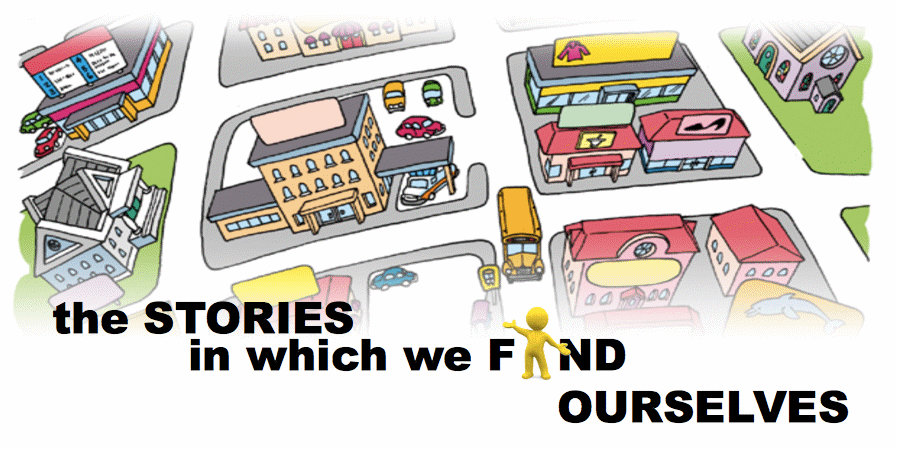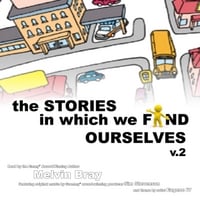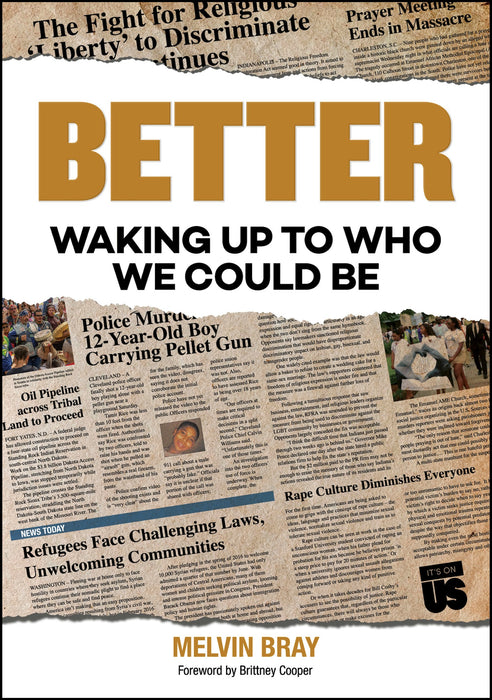The Making of Job—Episode 2
(from Job 2—a framing story)
Well, Lucifer was undone. He thought for sure that the compounding tragedy, one awful hit after the other, would be enough to devastate Job to the point that he would curse God and prove Lucifer right. "Surely loyalty cannot survive such great loss," he thought to himself. But as awful as things had gotten for Job—and things were awful, there is no way to gloss over that or to minimize it—Job was not destroyed. And what that meant for Lucifer was something was wrong.
At the next general assembly, Lucifer was in his seat at the start of the meeting when the sons and daughters of God gathered to report on the generative activities unfolding throughout the universe. God could barely wait to bring up the subject on everybody's mind. "Have you considered our son, Job?" God asked breaking into a broad smile. The room erupted with laughter. "'There is no one like him on the earth, a blameless and upright man who... [has the utmost respect for] God and turns away from evil. He still persists in his integrity, although you incited me against him, to destroy him for no reason.’"
Then Lucifer retorted, "‘Skin for skin! All that people have they will give to save their lives. [Just] stretch out your hand now and touch his bone and his flesh, and he will curse you to your face.’"
God paused for a moment, staring deeply into Lucifer's eyes with a strange mixture of pity and annoyance. "‘Very well, he is in your power; only spare his life.’"
So Lucifer left the assembly again, and the Bible tells us that he "inflicted loathsome sores on Job from the sole of his foot to the crown of his head. Job took a... [piece of broken pottery] with which to scrape himself, and sat among the ashes."
Then in despair Job's wife said to him, "‘Do you still persist in your integrity? Curse God, and die.’"
But Job responded, "You speak foolishly. 'Shall we receive the good at the hand of God, and not receive the bad?’"
And the judgement of the Hebrews who first told the story was that "in all this Job did not sin with his lips."
So the stage was set for one of the most dramatic showdowns ever captured in tale. And as with Hollywood or Broadway productions of today, much of the most meaningful action took place not up front, but behind the scenes. Perhaps that's the first big thing we learn about the stories in which we find ourselves. Many of them are attempts to go behind the scenes, to apprehend the unknown, to perceive the unseen, to broach the unfathomable. Why, you might wonder, would one seek out the hidden? Because that is human nature. We seek to organize and give meaning to our lives through the stories we tell. And sometimes that means filling in the gaps with the best we can surmise at a particular moment. We do this everyday when we tell the parts of any story that involves stuff we couldn't possibly know, like what a family member must have been thinking or what a friend did while she was away from us or what exactly two people said to one another that brought them to an historically significant decision—none of which we could know for a certainty.
It also means that we often seek to make concrete, realities that are often intangible. For example, in our stories we may describe what is to us a climactic struggle between opposing forces as a simple conversation between untamed iconic powers, God and Satan, for example. Or we may go the other way with it, making the typical highly dramatic—whichever serves the story best. This is just our human way of trying to get a handle on things that are beyond our perspective. Sometimes the 'goodness' and 'badness' of a situation seem universal and very clear. Other times, we pass that judgement based on our own limited perceptions of right and wrong. We can't forever tell child-like fables in which we speak of good and bad as domesticated animals that do our bidding: "Nice Good, you stay where I can see you," or "You Mean Bad, get back where you belong!" So we weave our interpretations of these very real opposing forces at work in our lives into our tellings of our stories, expecting that the reader forever understands that any story told is always told from a particular point of view.
We tend to use fancy words to describe this very simple and natural and just process. For the Hebrews who first told Job's story, the act of filling in the gaps was a sacred work—as sacred as just getting the facts straight—which over time came to be known as "midrash". In contemporary times, we may say that the author 'fictionalized' part of the story—in other words, 'made it up,' like much of the dialogue in the Job story—but that is not to say the author lied. Fiction is no less true simply because it is imagined. Imagination is how we as humans connect the dots of our individual experiences, make sense of our world and know that we are not alone. As long as we confess this and remember that not every part of every story we tell comes from direct experience, we are fine. It's when we become certain that our particular telling of a story happened exactly the way we tell it and has only one very definite interpretation that we tend to get in trouble—or better yet, become very troublesome to others. However, as we understand and experience more, we should expect to interpret and tell our stories differently, and every once in a great while, we may even begin to tell different stories.
These first couple episodes of Job help us to understand such things and a great deal more.










No comments:
Post a Comment